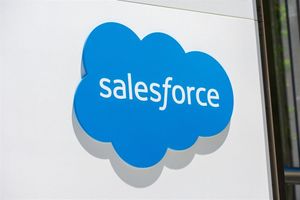
Atlanta, GA – October 16, 2025 – Rayonier Inc. (NYSE: RYN) has announced a fourth-quarter cash dividend of $0.2725 per common share, maintaining its impressive track record of consistent shareholder returns. This declaration, made today, October 16, 2025, underscores the company's financial stability as a leading timberland Real Estate Investment Trust (REIT). The news arrives concurrently with the monumental announcement of an all-stock "merger of equals" with PotlatchDeltic Corporation (NASDAQ: PCH), poised to create the second-largest publicly traded timber and wood products company in North America.
The consistent dividend payout, a hallmark of Rayonier's operations for over three decades, reinforces the appeal of timberland REITs as a source of steady income for investors. This reliability, combined with the transformative merger, signals a strategic pivot within the sector towards greater scale, diversification, and a concerted effort to capitalize on evolving market opportunities, including a strengthening housing market and the burgeoning natural climate solutions space.
A Legacy of Returns Meets a Future of Scale: Rayonier's Strategic Double Play
Rayonier's recent activities paint a picture of a company balancing a commitment to its long-standing dividend policy with aggressive strategic expansion. The declared fourth-quarter cash dividend of $0.2725 per common share will be payable on December 31, 2025, to shareholders of record on December 10, 2025, with an ex-dividend date of December 9, 2025. This regular distribution is a testament to Rayonier's robust business model as a timberland REIT, which leverages biological growth, harvest flexibility, and diversified revenue streams from timber sales and strategic land management.
Beyond its regular payout, Rayonier also announced a significant one-time special dividend of $1.40 per common share, payable on December 12, 2025. This special dividend, consisting of up to 25% cash and the remainder in Rayonier common shares, stems from the taxable gains generated by the successful $710 million sale of the company's New Zealand joint venture interests, which closed on June 30, 2025. This move strategically returns capital to shareholders while optimizing the company's asset portfolio ahead of the merger.
The centerpiece of Rayonier's recent strategic maneuvers is the definitive agreement to merge with PotlatchDeltic. Announced on October 14, 2025, this all-stock transaction will forge a combined entity with an estimated equity market capitalization of $7.1 billion and a total enterprise value of $8.2 billion. The "merger of equals" will create a timberland powerhouse managing approximately 4.2 million acres across 11 U.S. states, with a significant presence in both the U.S. South and Pacific Northwest. The combined company will also operate seven wood products manufacturing facilities, including six lumber mills with a formidable capacity of 1.2 billion board feet. The transaction is expected to close in late first quarter or early second quarter of 2026, pending regulatory and shareholder approvals.
Winners and Losers: Navigating the New Timberland Landscape
The strategic moves by Rayonier (NYSE: RYN) and PotlatchDeltic (NASDAQ: PCH) are set to create a new dynamic within the timberland REIT sector, generating both opportunities and challenges for the involved parties and their competitors.
For Rayonier, the merger offers a substantial increase in scale and diversification. The expanded land base across varied geographies mitigates risks from regional market fluctuations and natural events, while the enhanced lumber manufacturing capacity positions the company to better capitalize on housing demand. Synergies of approximately $40 million annually are anticipated, promising improved operational efficiency and cost savings. However, Rayonier's stock initially fell over 5% post-announcement, indicating some investor apprehension regarding integration risks and potentially higher leverage for the combined entity.
PotlatchDeltic shareholders are poised for immediate gains, receiving 1.7339 common shares of Rayonier for each of their shares, representing an 8.25% premium. They will also gain exposure to a larger, more diversified asset base and an improved leverage profile. The continuity of leadership, with PotlatchDeltic's CEO Eric Cremers becoming Executive Chair, offers stability. Nonetheless, some analysts suggest the merger price might not fully capture PotlatchDeltic's standalone value, and the company will lose its independent identity. An ongoing legal investigation into the fairness of the merger for PotlatchDeltic's board of directors adds a layer of uncertainty.
For other timberland REITs and related industries, the merger signals a clear trend towards consolidation, potentially setting new benchmarks for valuations. This could lead to a more stable market but also intensifies competition from the newly formed timber giant. Smaller players might face pressure to achieve similar scale or consider strategic alliances. The increased market power of the combined entity could influence timber and wood product pricing, impacting both suppliers and buyers in the value chain. Furthermore, new tariffs on softwood imports are expected to benefit domestic lumber players, including the merged entity and other U.S. timberland REITs.
Broader Strokes: Consolidation, ESG, and the Future of Timberland
The merger of Rayonier and PotlatchDeltic is more than just a corporate transaction; it's a significant indicator of broader trends shaping the timberland REIT sector and the wider real estate and natural resources industries. Rayonier's consistent dividend, maintained for 32 years, underscores the inherent stability and long-term value proposition of timberland as a real asset, offering an effective inflation hedge and predictable income streams. This reliability is a cornerstone of investor confidence in the REIT model.
The consolidation trend, exemplified by this merger, is a strategic response to the pursuit of greater scale, enhanced operational efficiencies, and diversified asset portfolios. This mirrors similar consolidation waves seen across various REIT sectors, where larger entities often benefit from improved access to capital markets, greater liquidity, and increased market influence. The combined entity's vast and geographically diverse timberland holdings will provide a balanced exposure to different timber markets and mitigate regional risks, a critical factor in a world grappling with climate change and localized natural disasters.
Beyond traditional timber harvesting, the new company is strategically positioned to capitalize on emerging opportunities in environmental, social, and governance (ESG) initiatives. Both Rayonier and PotlatchDeltic have been exploring and tapping into new revenue streams from land-based and natural climate solutions, such as utility solar leasing, carbon capture and storage, and the rapidly expanding voluntary carbon markets. This pivot towards monetizing ecosystem services aligns with global sustainability goals and could significantly diversify income streams, potentially yielding returns far exceeding traditional timber farming. Regulatory frameworks and policy incentives supporting sustainable forestry and carbon sequestration will continue to play a crucial role in shaping these opportunities.
The Road Ahead: Integration, Innovation, and Market Dynamics
As the merger of Rayonier and PotlatchDeltic moves towards its anticipated closing in early 2026, the short-term focus for the combined entity will be on a seamless integration of operations and corporate functions. Successfully realizing the projected $40 million in annual synergies within the first 24 months will be paramount to demonstrating the value accretion of this strategic combination and building investor confidence. The new leadership team, headed by Mark McHugh as President and CEO, will face the challenge of harmonizing two distinct corporate cultures and operational frameworks.
In the long term, the combined entity is poised to leverage its enhanced scale and diversified asset base to pursue significant growth opportunities. This includes continued optimization of its vast timberland portfolio for higher-and-better-use (HBU) real estate development, particularly in strategically located areas. The company is also expected to aggressively expand its involvement in natural climate solutions, such as developing and selling high-quality carbon credits and increasing land leases for renewable energy projects. These initiatives represent a strategic pivot towards diversifying revenue beyond traditional timber sales and positioning the company as a leader in sustainable land management.
The future performance of the new timberland giant will remain closely tied to the health of the U.S. housing market, which directly impacts lumber demand and prices. While recent data suggests a slowdown, the underlying housing shortage in the U.S. and the potential for normalizing interest rates could fuel a rebound. Additionally, ongoing U.S. tariffs on Canadian softwood imports are expected to continue benefiting domestic lumber producers. Investors should also watch for the evolution of the voluntary carbon market and the company's ability to effectively monetize its extensive timberland assets for carbon sequestration and other ecosystem services, which could become a significant long-term growth driver.
A New Chapter for Timberland Investment
The merger of Rayonier and PotlatchDeltic, underscored by Rayonier's unwavering commitment to shareholder dividends, marks a pivotal moment in the timberland REIT sector. This strategic consolidation creates a more robust, diversified, and efficient entity poised to navigate evolving market dynamics and capitalize on emerging opportunities. The key takeaways include the reinforcement of timberland as a stable, income-generating asset class, the growing importance of scale and diversification in a competitive environment, and the increasing strategic value of land-based natural climate solutions.
Moving forward, the market will closely scrutinize the execution of the merger, particularly the realization of anticipated synergies and the seamless integration of operations. The new company's ability to consistently grow its dividend while strategically investing in HBU real estate and natural climate solutions will be a critical measure of its long-term success. Investors should pay close attention to the upcoming third-quarter 2025 earnings release from Rayonier on November 5, 2025, for further insights into the company's financial health leading into this transformative period. The performance of the housing market, the impact of trade policies, and the development of new revenue streams from environmental services will collectively shape the trajectory of this new timberland powerhouse. This merger not only reshapes two companies but sets a new standard for strategic growth and sustainable value creation within the timberland investment landscape.
This content is intended for informational purposes only and is not financial advice





